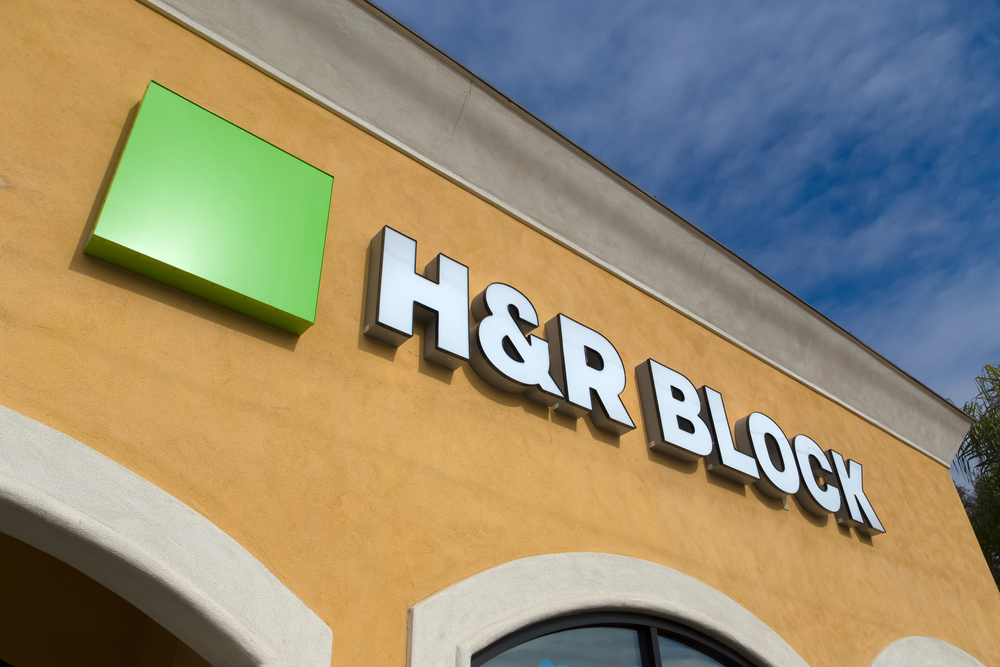
Investors that can do basic math will realize that the numbers that H&R Block (NYSE:HRB) is likely to report in its first-quarter 2021 earnings report are decoupled from reality. The company is projected to report earnings per share (EPS) of 37 cents on revenue of $557.85 million. The whisper number is suggesting that HRB may post an upside surprise on earnings to 42 cents per share.
In the same quarter in 2019 prior year, H&R Block posted negative earnings per share of 72 cents on sales of $150.4 million. But this is not an apples-to-apples comparison. And the reason for that was the novel coronavirus.
The novel coronavirus and subsequent mitigation efforts to slow the spread hurt Block’s business in three key ways. First, it forced the company to shut locations to in-person tax preparation. Second, there was a large influx of people who filed a “quick” tax return online in order to receive a stimulus payment in April. And third, and most significant for this earnings period, it pushed revenue forward.
All of these factors are more than likely “one-off’s” which means that when you consider HRB stock for your portfolio, you shouldn’t assign weight to them.
HRB Stock Looks Undervalued
Over the last five year, HRB stock has traded in the $20 range. It typically spikes, as would be expected, in what is the company’s fiscal fourth-quarter (which ends in April). That wasn’t the case this year as the company is realizing some of that revenue in the current quarter.
However, with the stock trading at just below $15 per share heading into earnings, it looks undervalued.
Death and Taxes
The pandemic brought about an unprecedented three-month extension of the traditional April 15 filing deadline. But the inevitable fact remains. Americans did have to file their taxes and will continue to do so.
H&R Block has moved into the self-serve realm of Intuit (NASDAQ:INTU) and its TurboTax system. Block offers customers a completely self-serve option as well as a hybrid model where they can get some assistance from a provider. This will continue to grow, particularly among young filers whose returns are very straightforward and who are expecting a return.
But people will still want, and need, to have their taxes professionally prepared. In this gig economy, freelancers and other self-employed individuals who file on their own are audit magnets. Frequently these individuals will overstate deductible expenses or do other things that violate the internal revenue service (IRS) tax code.
On the other hand, these individuals may not be aware of, and take advantage of, the opportunities available to them.
Simply put, the tax code is complicated. I’ve always approached having my taxes done similar to working on my car. Cars have become complex. It’s a better use of my time (and peace of mind) to have a professional work on my car. I feel the same about my taxes. It may be penny-wise to do my own taxes, but it’s likely to be pound foolish. And the IRS is a headache I don’t need.
And if that anecdotal evidence isn’t enough, here’s something to sharpen your pencil with. In a year where customers had more than enough reason to avail themselves of the DIY tax experience, H&R Block only saw a shift of about 300 basis points.
Count on a Solid Dividend
In the midst of this unusual and historical year, H&R Block continued to pay a dividend. That’s not a small feat, but it’s one that shouldn’t be overlooked. The company has not failed to make a dividend payment since it started doing so in 1962. The company may not have the largest dividend, but it clearly prioritizes shareholder equity.
The Final Word on H&R Block
Whatever you may have felt about HRB stock heading into the pandemic should be your feeling about the stock coming out of the pandemic. Businesses are adapting to a model that includes social distancing and other measures to mitigate spreading of the virus. When a safe and effective vaccine is available, those measures will be less necessary (although I suspect many measures will stay in place).
The bottom line for me is that HRB is a classic defensive stock and you should treat it as such. It’s not going to make you rich, but it can have a place in the portfolio of value investors.
Before you consider H&R Block, you'll want to hear this.
MarketBeat keeps track of Wall Street's top-rated and best performing research analysts and the stocks they recommend to their clients on a daily basis. MarketBeat has identified the five stocks that top analysts are quietly whispering to their clients to buy now before the broader market catches on... and H&R Block wasn't on the list.
While H&R Block currently has a "Hold" rating among analysts, top-rated analysts believe these five stocks are better buys.
View The Five Stocks Here
Looking to generate income with your stock portfolio? Use these ten stocks to generate a safe and reliable source of investment income.
Get This Free Report